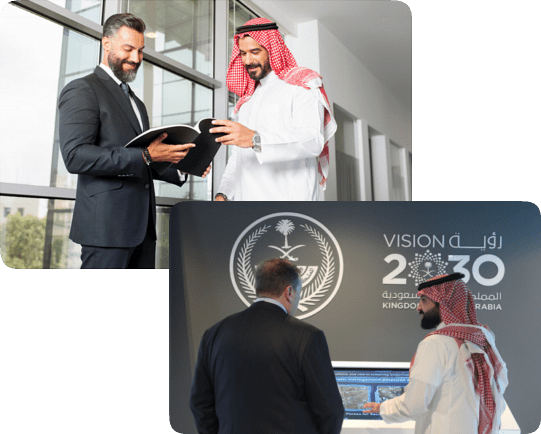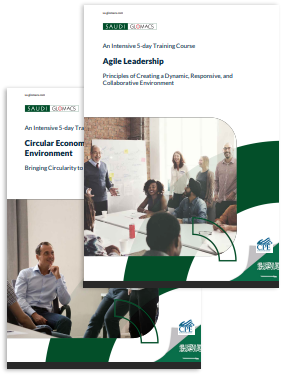An Interactive 5-Day Training Course
LNG Commercial Management
LNG Supply, Demand & Pricing
Course Overview
LNG is natural gas that has been converted to liquid form by cooling -160C for the ease of storage, transportation and distribution. Natural gas currently accounts for 22% of aggregate global energy supply. LNG is the most energy efficient fossil fuel— it offers important energy saving benefits when it is used instead of oil or coal. It is also a source of hydrocarbons for petrochemical feedstock and a major source of elemental sulphur. Its popularity as an energy source is expected to grow substantially in the future because LNG can help achieve two important energy goals for the twenty-first century— providing the sustainable energy supplies and services needed for social and economic development and reducing adverse impacts on global climate and the environment in general.
This interactive, applications-driven 5-day LNG Commercial Management training course will highlight the wide array of LNG business features from beginning to the end. This LNG Commercial Management training course is designed to help managers and professionals to expand their business knowledge and stay top of LNG business dynamics.
This Saudi GLOMACS LNG Commercial Management training course will feature:
- The fundamentals of LNG, production, transportation, pricing and its business economics
- Global supply-demand, global production, global market dynamics
- Analysis of technical, commercial, contractual business transactions
- Understanding LNG Supply, Sales and Purchase agreements
- Understanding LNG Regional Price Disparities, and Pricing Issuing
- LNG Pricing structures key to future of LNG exports
- LNG Sales, Marketing and Trading
- Technical and economic success factors in business to support strategic initiatives; to mitigate risk; and to direct operational decision making
Training Outline
DAY 1: Setting the Introductory LNG Scene in Energy Industry
- Introduction to the LNG Industry
- Exploration, Development and LNG Production, Shipping, Importation
- Cost and Value Drivers: Shareholder Expectations
- The Value Chain: From Wellhead to Burner Tip
- Players: Governments, NOCs, IOCs, Banks and Insurers, etc.
- Natural Gas Value Chain
- Exploration and Production
- Processing and Production
- Sales Gas Transmission
- Underground Storage
- Distribution
- Sales Gas and Product Specifications
- Global Production
- Where and Who are the Producers of LNG
- Projects currently under Development
- Global Markets
- Where and Who are the users of LNG
- Projects currently under Development
- Gas Conditioning Processes
- Excess Water Removal
- Contaminants Removal
- NGL Separation
DAY 2: Essential Logistics of LNG
- Nitrogen Rejection Processes
- Cryogenic Process
- Absorption Process (using lean oil or solvent) Membrane Separation
- Adsorption Process (activated carbon) Storage System
- LNG Transportation Logistics
- Vapour Recovery System LACT Unit
- Sampling
- Natural Gas Transportation
- Pipeline Components
- Compressor Stations
- Metering Stations
- Valves
- Control Stations
- Pipeline Operations
- Basics of Gas Pipeline
- Gas Flow Measurement
- Liquefied Natural Gas (LNG)
- Why LNG a Growth Industry
- Compression & Refrigeration
- Transportation of LNG
- Major LNG Exporting Nations
- Major Importing Nations
DAY 3: LNG Pricing Structures for Exports, Marketing and Project Risks
- LNG Sales, Marketing and Trade
- Price Disparity in Different Regions
- LNG Benchmarks
- Major Changes in LNG Business
- LNG Pricing Structures and Price Dynamics
- Natural Gas Prices
- Regional Pricing Disparity
- Pricing Structures Key To Future Of LNG Exports
- Oil Linked LNG Pricing
- Business Sector
- Industry and Market Structure
- Natural Gas Demand
- Natural Gas Supply
- Economics of the Natural Gas Plants
- LNG Expanding Market
- LNG as Land Transport Fuel
- LNG as Marine Transport Fuel
- Key Project Risk and Value Identification
- Understanding the Fundamental Commercial Drivers for Project Success
- Identification of Key Project Risks (from a commercial perspective) and Mitigation Strategies
- Reserves Definitions and Reserves Certification
- Completion and Cost Overrun Risks
- Cost Linkages to Oil and Gas Prices
- Maximizing Profitability of Gas Plant Assets
- Business Evaluation and Profitability Analysis
- Return on Investment Analysis
- Selection Criteria of Best Return on Investment
- Portfolio Management
- The Performance Strategy— Integrated Gas Plant
- The Successful Information Strategy
- Operations Strategy
DAY 4: LNG Project Financing and Project Management
- Gas Plant Project Management
- Project Management Overview
- Industry Perspective
- The Project Management Process
- Project Controls & Quality Controls
- Quality Assurance
- Commissioning and Start-up
- Dispute Prevention & Arbitration
- Disputes
- Arbitration and Expert Determination
- Commercial Structures
- Alternative Commercial Structures
- Complexity of Integrating Requirements
- FOB vs. DES Sales
- LNG Project Financing Essentials
- Financial Structures in LNG
- Investment Decision Making
- The Key Value Drivers in LNG Financing
- Overview of LNG Financing Options
- Balance Financing
- ECA and Multilateral Agency Funding
- Capital Markets
- Asset based Financing
- Project Financing and Structured Recourse Financing
DAY 5: LNG Agreements, Regulations and Future Trends
- LNG Agreements
- Overview of the Contractual Terminology
- Stakeholder Analysis and Drivers
- Upstream Agreements
- LNG Supply Purchase Agreements SPA
- EPC Contracts
- LNG Shipping Arrangements / Agreements
- LNG Regasification Terminal Agreements
- Fiscal and Legal Regimes Worldwide
- Production sharing Arrangements
- Regulations
- The History of Regulations
- The Market under Regulation
- The Environmental Impact
- The Future Trends in Natural Gas Trends
- Trends in LNG Markets
- Latest Changes and Movements in LNG Trading
- The Impact of Shale Gas
- Hubs vs. Oil for Price Setting
- Market Shifts in Importation and Liquefaction
- Mid and Small-Scale LNG
- Benefits of Floating LNG Business
- Wrap-up and Summary
Certificates
- On successful completion of this training course, GLOMACS Certificate will be awarded to the delegates
- Continuing Professional Education credits (CPE) : In accordance with the standards of the National Registry of CPE Sponsor, one CPE credit is granted per 50 minutes of attendance
Accreditation

GLOMACS is registered with NASBA as a sponsor of Continuing Professional Education (CPE) on the National Registry of CPE Sponsors. NASBA have final authority on the acceptance of individual courses for CPE credit. Complaints regarding registered sponsors may be submitted to the National Registry of CPE Sponsors through its website: www.learningmarket.org.
All Training Seminars delivered by GLOMACS by default are eligible for CPE Credit.


About Saudi Glomacs
At Saudi GLOMACS, we specialize in delivering world-class training courses in Saudi Arabia and across various international locations. Our training courses are tailored to meet the unique demands of Saudi Vision 2030 and the Human Capability Development Program, focusing on empowering Saudi citizens and enhancing workforce skills. We offer diverse courses spanning leadership, management, engineering, and technical disciplines to cultivate expertise and drive professional growth. Our flexible learning options—whether in-person, online, or in-house—ensure accessibility and convenience for individuals and organizations alike.
With over 30+ years of experience through the GLOMACS global network, we are committed to delivering innovative, results-driven training solutions. Our expert instructors combine industry knowledge with dynamic teaching methods, fostering practical skill development and long-term career success. By choosing Saudi GLOMACS, you're investing in personal excellence and contributing to the Kingdom’s sustainable economic growth and vision-driven transformation.
What do you need to learn next?
Check our list of courses or let us customize a course for you.
View courses



